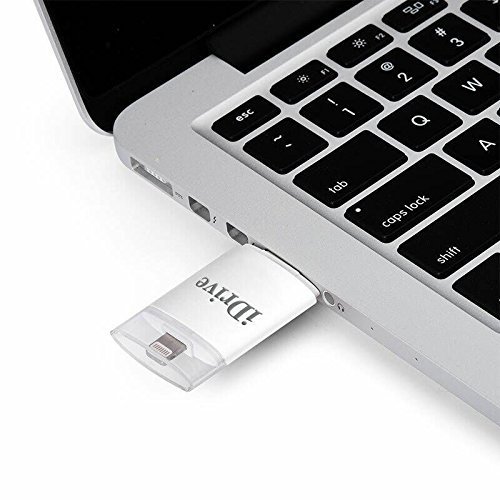This post is in response to Ashish Chandel's question regarding the measurement units to measure the storage capacity of a computer system.
I try to answer his query by listing the different measurement units and explaining them. It will help you to understand how much data you can store in a device with a specified capacity.
Show your love! Share this page!
As you know computer stores everything as binary digits. One binary digit (0 or 1) is called one bit. Eight such bits make up one byte. One byte is the storage space required to store one character (alphabet, numbers or any special symbols). 1024 such bytes make up one kilobytes. Similarly, 1024 bytes make up one megabyte. Similarly, there are other higher units to measure the space requirement such as gigabyte, terabyte, petabyte, exabyte.

QKILL 32GB iDRIVE IFLASH Drive USB External Storage
Space Measurement Units in Computer Systems
| Unit | Value | Size |
|---|---|---|
| bit (b) | 0 or 1 | 1/8 of a byte |
| byte (B) | 8 bits | 1 byte |
| kilobyte (KB) | 10001 bytes | 1,000 bytes |
| megabyte (MB) | 10002 bytes | 1,000,000 bytes |
| gigabyte (GB) | 10003 bytes | 1,000,000,000 bytes |
| terabyte (TB) | 10004 bytes | 1,000,000,000,000 bytes |
| petabyte (PB) | 10005 bytes | 1,000,000,000,000,000 bytes |
| exabyte (EB) | 10006 bytes | 1,000,000,000,000,000,000 bytes |
| zettabyte (ZB) | 10007 bytes | 1,000,000,000,000,000,000,000 bytes |
| yottabyte (YB) | 10008 bytes | 1,000,000,000,000,000,000,000,000 bytes |
NOTE: A lowercase "b" is used as an abbreviation for bits, while an uppercase "B" represents bytes. This is an important distinction, since a byte is 8x as large as a bit.
For example, 100 KB (kilobytes) = 800 Kb (kilobits).
The smallest unit of measurement used for measuring data is a bit. A single bit can have a value of either 0 or 1. It may contain a binary value (such as On/Off or True/False), but nothing more. Therefore, a byte, or eight bits, is used as the fundamental unit of measurement for data. A byte can store 28 or 256 different values, which is sufficient to represent standard ASCII characters, such as letters, numbers and symbols.
Since most files contain thousands of bytes, file sizes are often measured in kilobytes. Larger files, such as images, videos, and audio files, contain millions of bytes and therefore are measured in megabytes. Modern storage devices can store thousands of these files, which is why storage capacity is typically measured in gigabytes or eventerabytes. Larger units of measurement are usually reserved for measuring the sum of multiple storage devices or the capacity of large data storage networks.
References:
Leave a Reply